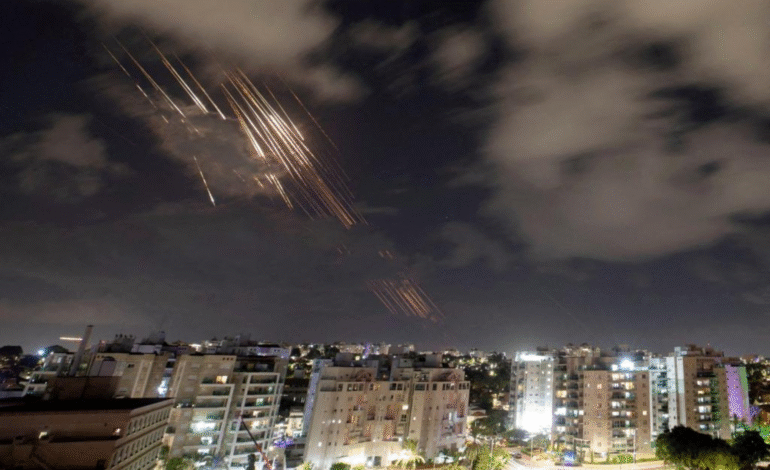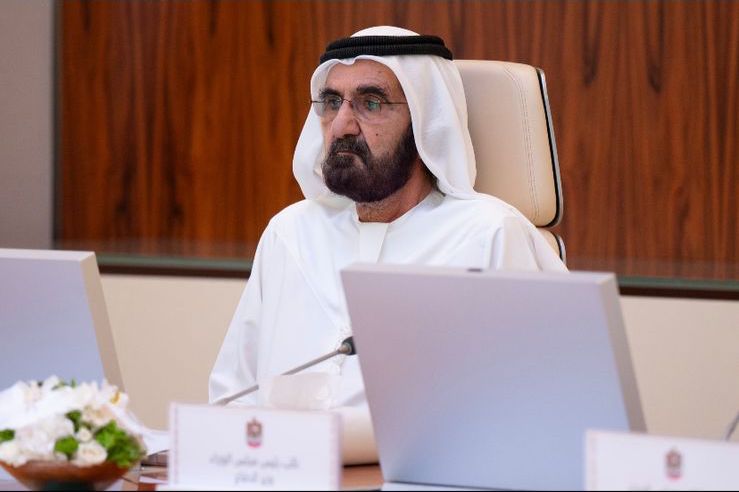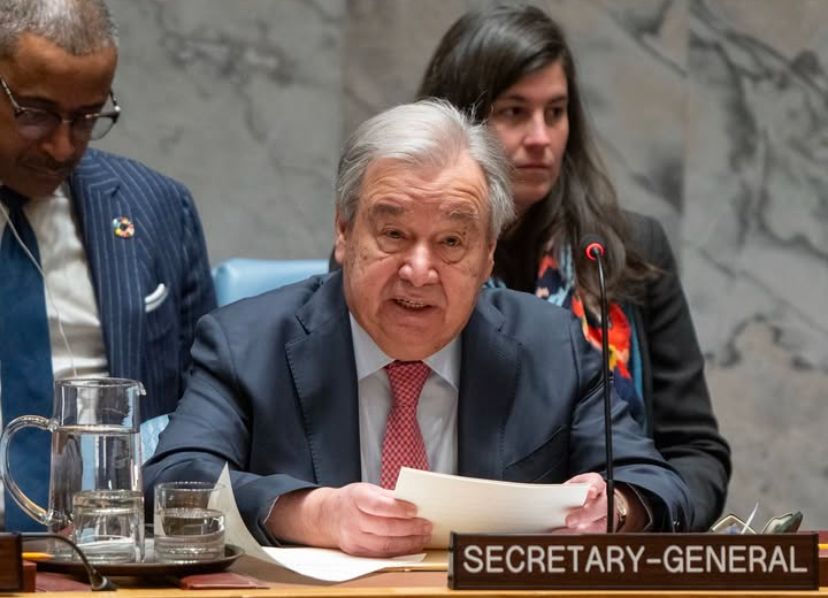Israel Iran Conflict Escalates with Strikes and Retaliatory Attacks

The ongoing conflict between Israel and Iran has entered a volatile and dangerous new phase, as both nations engage in a series of military strikes and retaliations. With rising casualties and continued threats, the situation has rapidly escalated, drawing concern from international observers. The renewed violence raises the specter of a broader regional conflict, particularly as both sides vow to continue their military operations.
Recent Attacks Highlight Growing Intensity
On Saturday morning, Iran reported that its air defense systems had been activated in the cities of Khorramabad, Kermanshah, and Tabriz. These actions suggested incoming Israeli missile strikes, part of a new offensive wave. The Israeli strikes followed retaliatory attacks by Iran that killed at least three people and injured dozens in central Israel.
The Iranian attacks were in response to an Israeli operation the previous day, which reportedly targeted high-ranking individuals involved in Iran’s nuclear program and armed forces. Iran’s ambassador to the United Nations stated that 78 people were killed and over 320 were wounded in those strikes.
Underlying Tensions Driving the Conflict
For years, Israel and Iran have been entangled in a deeply rooted rivalry, particularly concerning Iran’s nuclear activities. Israel views Iran’s nuclear ambitions as a direct threat to its national security. In contrast, Iran insists its nuclear program is for peaceful purposes. Despite intermittent diplomatic efforts, tensions have continued to mount.
The current flare-up is among the most serious in recent memory. It follows months of increasing hostilities, both online through cyber warfare and via proxy engagements involving allied militias and non-state actors across the region.
Israel’s Justification for Offensive Operations
Israel has maintained that its recent actions are preemptive and necessary to safeguard its citizens. Defense Minister Israel Katz issued a strong warning following the Iranian missile barrage, declaring that “Tehran will burn” if further attacks continue. Prime Minister Benjamin Netanyahu echoed these sentiments, stating that the strikes were aimed at eliminating threats before they could materialize.
The Israeli leadership claims that the targets were directly involved in nuclear weapons development. Although Iran has consistently denied seeking nuclear weapons, Israeli officials assert that intelligence reports suggest otherwise. However, U.S. government sources and independent experts have indicated that Iran was not actively pursuing a nuclear weapon prior to the Friday strikes.
Iran’s Swift and Deadly Retaliation
In response to Israel’s strikes, Iran launched a series of missile attacks early Saturday, resulting in the deaths of at least three people and injuries to dozens in Israeli cities. Air raid sirens were activated across the country, and Israel’s defense systems intercepted several projectiles.
Inside Iran, the atmosphere remains tense. The high death toll from Friday’s airstrikes has sparked public outrage. Air defenses in several cities have remained on alert, reflecting concerns over further Israeli attacks. Iranian officials have vowed to continue defending the country and retaliating against any further acts of aggression.
Global Community Calls for Restraint
Governments around the world have expressed concern over the escalating conflict. The United Nations has been briefed, and emergency diplomatic meetings are taking place to assess the potential fallout. Many countries have urged both sides to avoid further violence and to seek a diplomatic resolution.
The United States, while reiterating its support for Israel’s right to self-defense, has expressed concern about the growing threat of a regional war. The European Union has echoed these sentiments, warning of the destabilizing impact a prolonged conflict could have across the Middle East.
Fears of a Wider Regional War
One of the most alarming possibilities is that the conflict could spread beyond Israel and Iran. Both countries maintain networks of allies and proxies throughout the region. Iran has strong ties with militia groups in Lebanon, Iraq, Syria, and Yemen, while Israel has defense partnerships with Western and regional allies.
Analysts warn that if the conflict escalates further, it could drag other nations into the fight. The risk of broader confrontation increases with each new exchange of strikes and counterstrikes. The international community is closely monitoring developments, hoping to prevent a large-scale regional conflict.
Nuclear Program at the Center of Dispute
At the core of the tension is Iran’s nuclear program. Past agreements, such as the Joint Comprehensive Plan of Action (JCPOA), aimed to restrict Iran’s nuclear development in exchange for the lifting of sanctions. However, the collapse of the JCPOA and subsequent unilateral actions have created a diplomatic vacuum.
Israel claims Iran has used the breakdown of these agreements to expand its nuclear capabilities. Tehran continues to insist that its program is purely for civilian energy and medical purposes. The absence of mutual trust has made progress difficult, and the current conflict risks undermining whatever limited diplomatic achievements had been made in recent years.
Domestic Sentiment Reflects National Resolve
In both Israel and Iran, domestic sentiment is strongly aligned with government positions. In Israel, there is broad public support for the government’s defense strategies. Emergency measures have been activated, including the opening of shelters and rapid deployment of medical services in affected areas.
In Iran, the population has responded to the loss of civilian life with grief and anger. Public funerals for those killed in the Israeli airstrikes have drawn large crowds. Government leaders have pledged to take firm action in defense of the nation’s sovereignty and to hold those responsible accountable.
Information Warfare and Media Challenges
The fast-paced nature of the conflict has made accurate reporting difficult. Both governments are controlling the flow of information, and state media outlets are shaping public perception through selective coverage. Independent verification is challenging, and international media are relying on satellite imagery and third-party sources.
The spread of misinformation and disinformation has further complicated the situation. Some international organizations have called for greater transparency and urged all parties to allow independent media to report freely and safely. Accurate information is essential for informed diplomatic responses and public understanding.
Urgent Need for Diplomatic Solutions
With the conflict escalating, the risk of miscalculation is growing. International actors are urging restraint and advocating for dialogue. Diplomatic channels, including backchannel negotiations, may offer a way to de-escalate the crisis. However, success would require substantial political will from both sides.
Regional organizations and global powers could play key roles in facilitating talks. The priority remains preventing the outbreak of a full-scale war that could destabilize not only the Middle East but potentially impact global security and economic systems.
The coming days will be crucial. Whether the situation continues to deteriorate or gives way to negotiations will depend on decisions made by leaders in Tehran and Jerusalem. The hope remains that diplomacy can prevail over violence, and that efforts to promote peace and security in the region will not be in vain.








2 Comments
[…] escalating tensions between Israel and Iran following reciprocal military actions, India has taken a diplomatically distinct position by […]
[…] longstanding hostility between Israel and Iran has now entered its fifth consecutive day of direct military strikes, escalating tensions in an […]
Comments are closed.